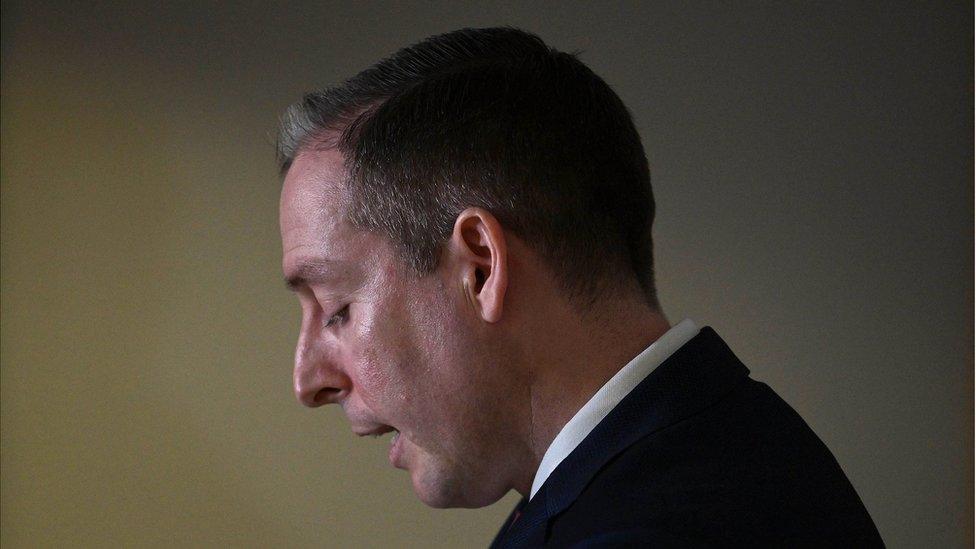RHI: Closure of 'cash-for-ash' scheme is delayed
- Published
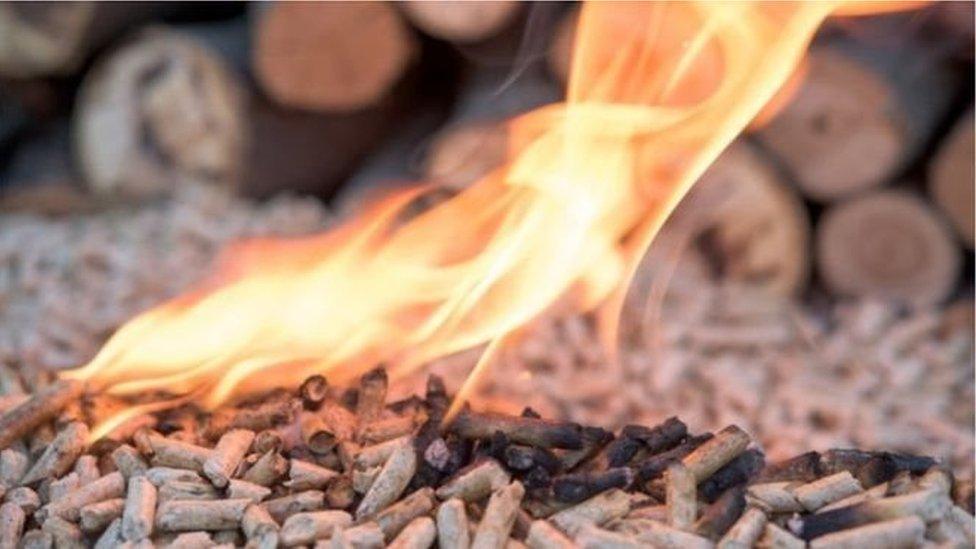
The RHI scheme encouraged businesses to switch from oil and gas to more environmentally-friendly heating methods
The closure of the Renewable Heat Incentive (RHI) scheme has been delayed, the economy minister has confirmed.
The Stormont parties had agreed to shut the scheme as part of 2020's New Decade, New Approach, external deal.
However the closure will not now happen in this financial year, Gordon Lyons has said.
It is understood there has been disagreement among executive parties about how to bring it to an end.
In February 2021 the executive laid out its preferred option for closing the scheme and compensating participants.
Part of the closure plan involved raising the tariffs for some RHI installations.
Those tariffs had been slashed as part of an emergency cost cutting measure.
After that the scheme would be closed with compensation paid on the basis of the revised tariffs.
Consultation on that closure plan was completed in April 2021.
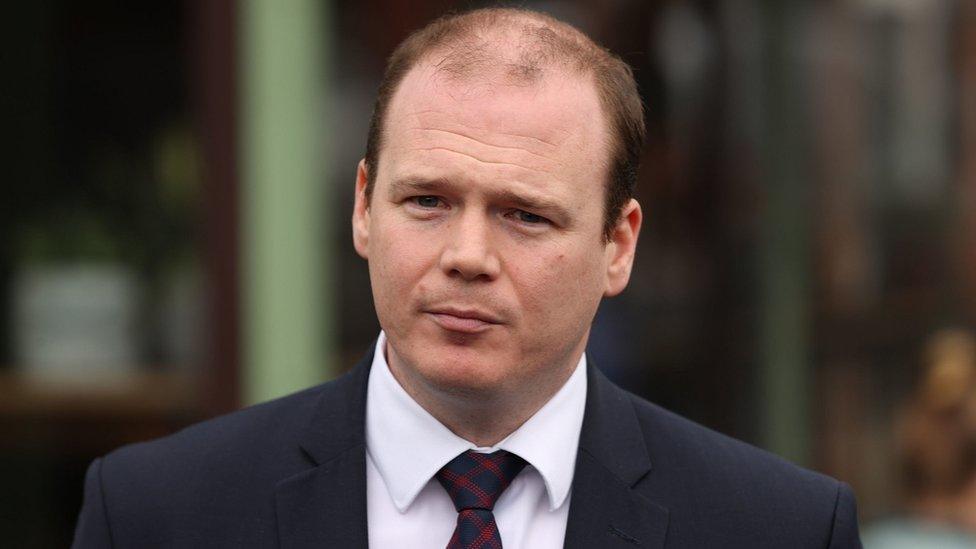
Gordon Lyons said he wanted to be fair to people on the scheme and to taxpayers
It is understood that Mr Lyons circulated a paper to the executive in January 2022.
However, a senior Stormont source told BBC News NI that Sinn Féin was unhappy with his proposal because it dealt with raising the tariffs but not the outright closure of the scheme.
The executive collapsed at the start of February, following the resignation of Paul Givan as first minister, meaning the issue can now no longer be dealt with.
'Blocked from executive agenda'
Speaking to the BBC on Thursday, Mr Lyons said he had tried to bring the issue to the executive "on numerous occasions".
"I did not get the ability to put that issue on to the agenda - others blocked that so that is up to them to answer why," he explained.
"I want something put in place that's fair to those on the scheme and fair to taxpayers.
"I brought recommendations to the executive that would achieve that, others didn't allow it on to the agenda."
A statement from the Department for the Economy said it does not comment on "potential policy decisions that rightly are for the executive collectively".
"Furthermore, decisions on the future of the scheme have a direct impact upon its participants. It would therefore be unhelpful for the department to engage in speculation on any potential outcomes in advance of any executive decision," a spokesperson continued.
"Any decisions will be communicated appropriately when the department is in a position to do so."
In May, the Court of Appeal in Belfast is due to hear a challenge to the cuts to the original RHI tariffs.
If it is successful it could leave the executive facing liabilities running into ten of millions of pounds.

What was the RHI scandal?
The RHI scheme paid 1,200 businesses to switch from oil and gas to what was meant to be environmentally-friendly heating, using wood pellet boilers.
However, the subsidy payment was higher than the cost of the fuel, creating an incentive to use the boilers to generate income.
It became known as the cash-for-ash scandal.
Some businesses invested heavily in the scheme after it opened in 2012, installing multiple boilers on their properties to take advantage of a lucrative 20-year subsidy offer.
It was so popular it became oversubscribed.
That coupled with a lack of cost controls from its inception meant that by 2016 Stormont was facing a multi-million pound overspend.
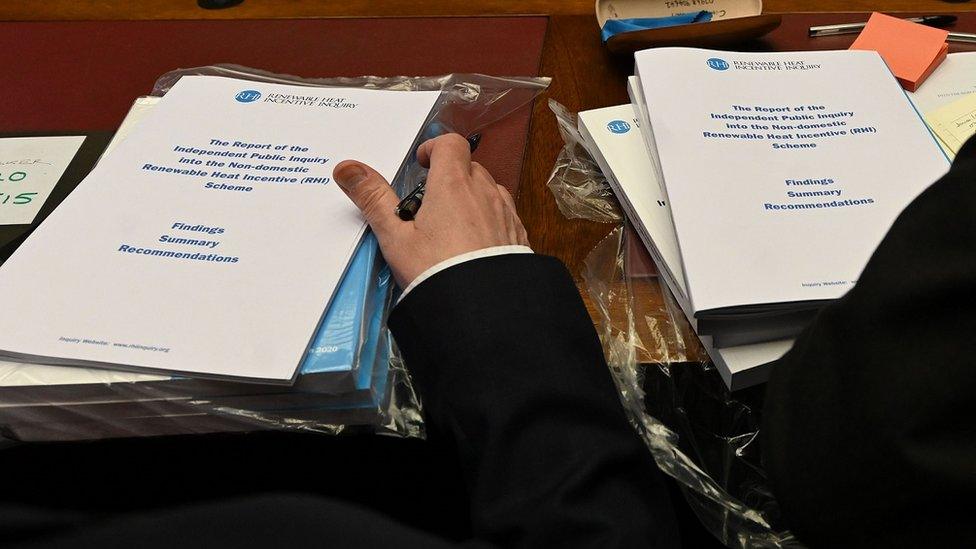
The public inquiry into RHI was set up in 2017 and produced its findings in 2020
The revelations caused a political crisis that led to a temporary collapse of Northern Ireland's devolved government in January 2017.
At one point the overspend was projected to reach as much as £700m but after reform of the scheme and significant cuts to subsidy rates the actual overspend was about £30m.
A public inquiry into the running of the RHI scheme was set up in 2017 and this cost taxpayers a further £13m.
The inquiry concluded that it was not corruption that led to the scheme running out of budgetary control but rather flaws in its design as well as errors and lack of attention on the part of those responsible for overseeing it.
Three years after it collapsed over the RHI controversy, Stormont was restored in January 2020 under the New Decade, New Approach agreement.
That 2020 agreement stated the RHI scheme should be closed down and replaced with a new scheme that "effectively cuts carbon emissions".
- Published13 March 2020
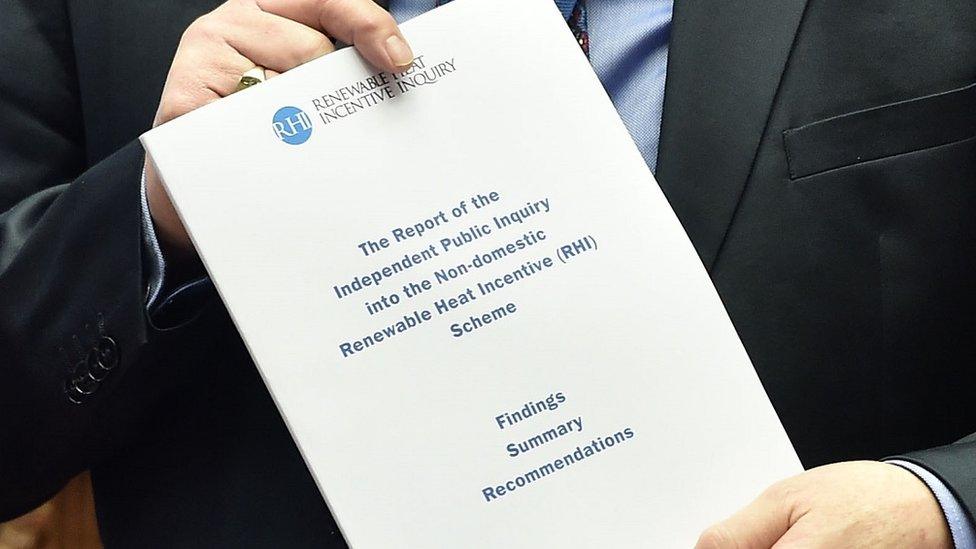
- Published13 March 2020
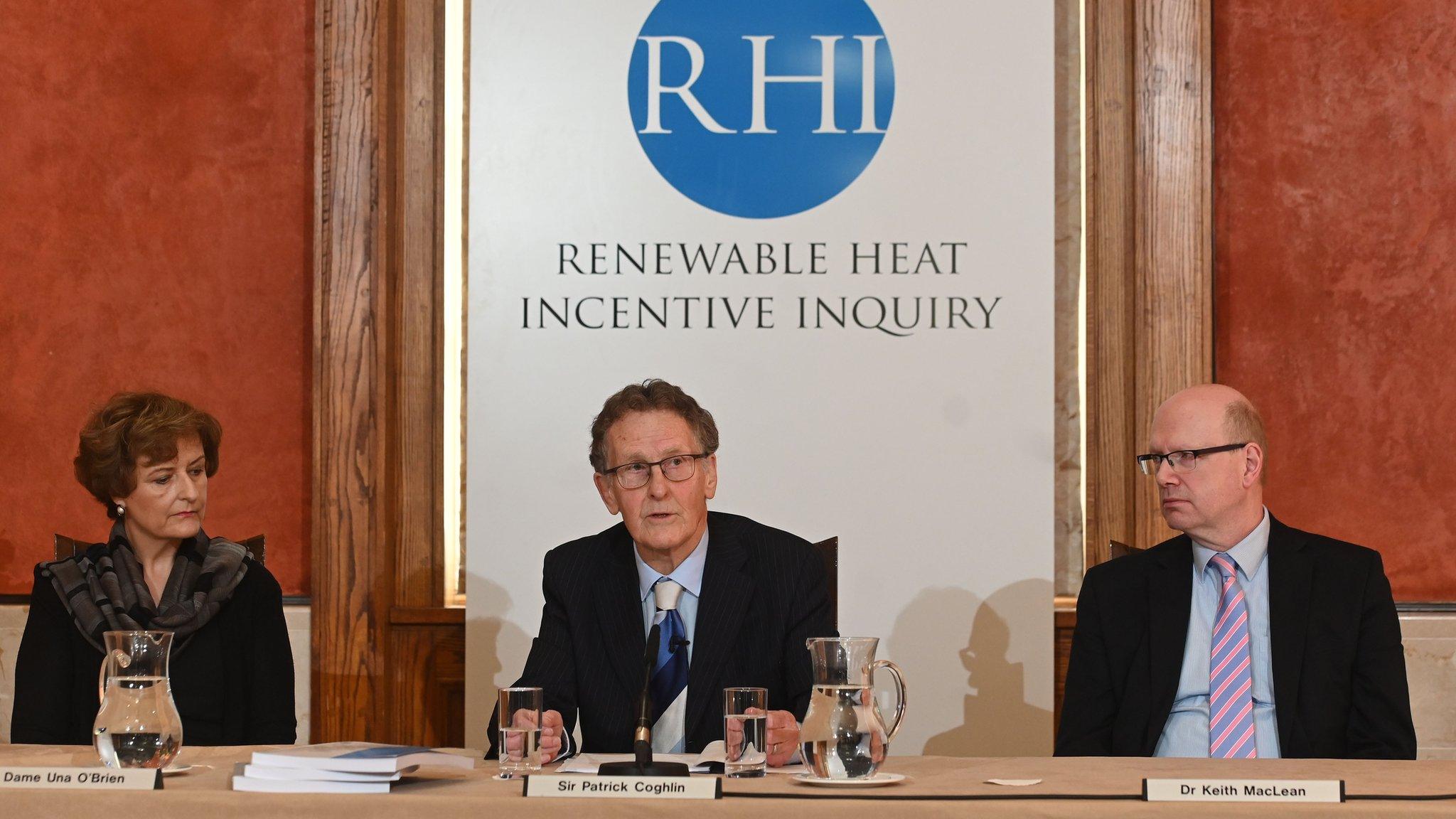
- Published3 February 2022
